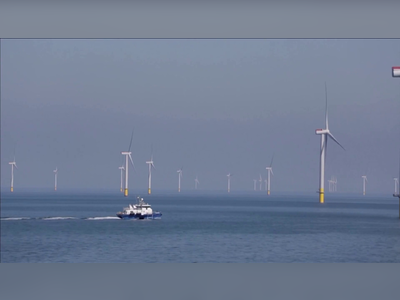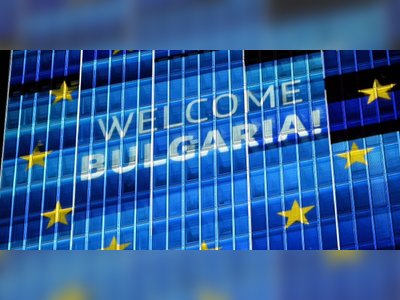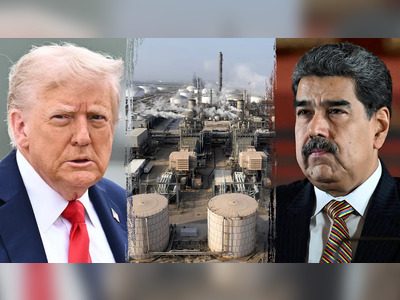Political Crisis in Portugal: Government Falls After Confidence Vote
Prime Minister Luís Montenegro's administration collapses, prompting the possibility of new elections as early as May 2025.
Portugal is experiencing a significant political crisis following the collapse of the conservative minority government led by Prime Minister Luís Montenegro.
The government lost a confidence vote in parliament, which was a pivotal moment for the administration that came to power less than a year ago, on April 2, 2024. The failure of Montenegro's government raises the prospect of new elections, potentially scheduled for May 2025, marking the third parliamentary election in just over three years.
The political instability comes despite Portugal's relatively robust economic performance, characterized by steady growth rates and historically low unemployment, achieved through stringent fiscal discipline.
However, the situation has been compounded by allegations related to a conflict of interest involving a family business linked to Montenegro.
His consultancy and real estate firm, Spinumiva, established in 2021, has come under scrutiny for purportedly benefiting from his position.
Montenegro has publicly denied any wrongdoing, asserting that the firm is now owned by his wife and children.
Amid mounting pressure, Montenegro, who previously survived two votes of no confidence, decided to put forth the confidence question as the opposition initiated plans for an investigative committee concerning the allegations.
He has characterized the impending elections as a "necessary evil," indicating that a transient period of instability may be preferable to a prolonged decline in governance.
In the wake of the government’s collapse, President Marcelo Rebelo de Sousa has the authority to appoint either a new member from the ruling coalition, known as the Democratic Alliance, or opposition leader Pedro Nuno Santos of the Socialist Party to attempt to form a new government.
However, political analysts suggest that the President may lean towards calling for fresh elections.
This scenario would follow the last parliamentary election, which occurred on March 10, 2024, triggered by the resignation of former Socialist Prime Minister António Costa due to corruption investigations involving him and other officials.
Notably, no charges have been substantiated against Costa, who currently serves as President of the European Council.
The government lost a confidence vote in parliament, which was a pivotal moment for the administration that came to power less than a year ago, on April 2, 2024. The failure of Montenegro's government raises the prospect of new elections, potentially scheduled for May 2025, marking the third parliamentary election in just over three years.
The political instability comes despite Portugal's relatively robust economic performance, characterized by steady growth rates and historically low unemployment, achieved through stringent fiscal discipline.
However, the situation has been compounded by allegations related to a conflict of interest involving a family business linked to Montenegro.
His consultancy and real estate firm, Spinumiva, established in 2021, has come under scrutiny for purportedly benefiting from his position.
Montenegro has publicly denied any wrongdoing, asserting that the firm is now owned by his wife and children.
Amid mounting pressure, Montenegro, who previously survived two votes of no confidence, decided to put forth the confidence question as the opposition initiated plans for an investigative committee concerning the allegations.
He has characterized the impending elections as a "necessary evil," indicating that a transient period of instability may be preferable to a prolonged decline in governance.
In the wake of the government’s collapse, President Marcelo Rebelo de Sousa has the authority to appoint either a new member from the ruling coalition, known as the Democratic Alliance, or opposition leader Pedro Nuno Santos of the Socialist Party to attempt to form a new government.
However, political analysts suggest that the President may lean towards calling for fresh elections.
This scenario would follow the last parliamentary election, which occurred on March 10, 2024, triggered by the resignation of former Socialist Prime Minister António Costa due to corruption investigations involving him and other officials.
Notably, no charges have been substantiated against Costa, who currently serves as President of the European Council.
AI Disclaimer: An advanced artificial intelligence (AI) system generated the content of this page on its own. This innovative technology conducts extensive research from a variety of reliable sources, performs rigorous fact-checking and verification, cleans up and balances biased or manipulated content, and presents a minimal factual summary that is just enough yet essential for you to function as an informed and educated citizen. Please keep in mind, however, that this system is an evolving technology, and as a result, the article may contain accidental inaccuracies or errors. We urge you to help us improve our site by reporting any inaccuracies you find using the "Contact Us" link at the bottom of this page. Your helpful feedback helps us improve our system and deliver more precise content. When you find an article of interest here, please look for the full and extensive coverage of this topic in traditional news sources, as they are written by professional journalists that we try to support, not replace. We appreciate your understanding and assistance.











